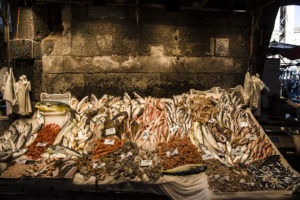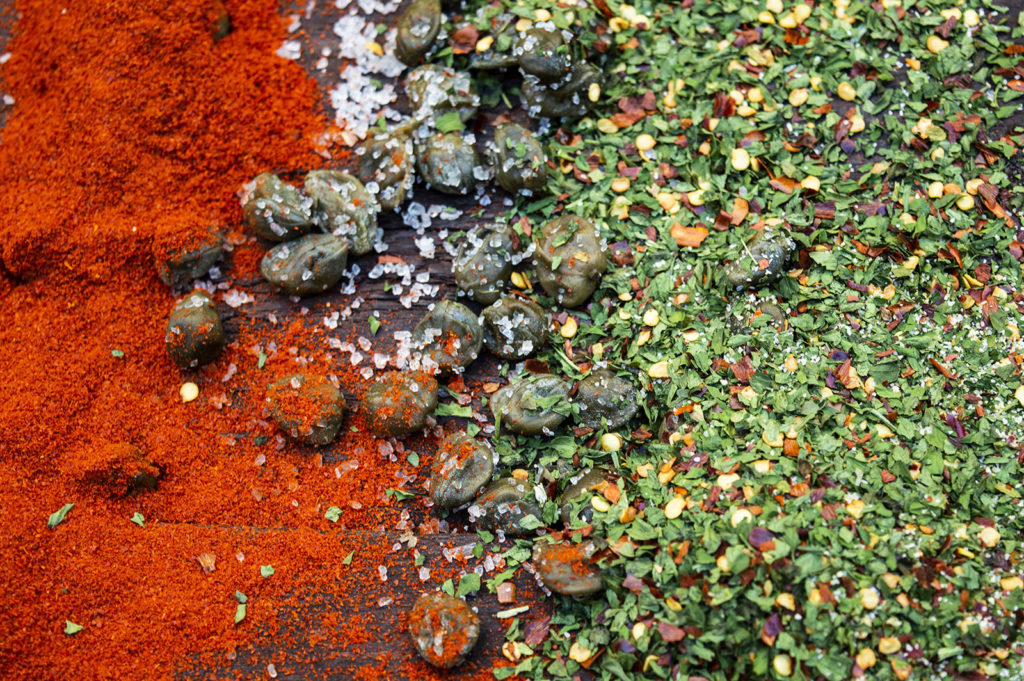 A few metres from the cathedral, just past Porta Uzeda, is the fish market, “a piscaria”. It has been home to one of Catania’s historical markets since the early 19th century.
A few metres from the cathedral, just past Porta Uzeda, is the fish market, “a piscaria”. It has been home to one of Catania’s historical markets since the early 19th century.
Modest in size, it is now a destination for fish connoisseurs and tourists.
Amidst the colours of red mullet and black mussel shells, the vendors’ shouts mingle with the smell.
Though rather strong and pungent, it’s definitely authentic and encourages visitors to take some fish home. Spices can also be found, to accompany the market purchases. Packaged in unidentified plastic bags, they tell a story of cultural influences steeped in past and present that reveal and release aromas of ancient origin. Observing in this way brings you closer to the beauty of these places.
The market of Catania is a theatre of taste, animated by the traders’ shouts, where you can revel in an atmosphere where time seems to stand still.
